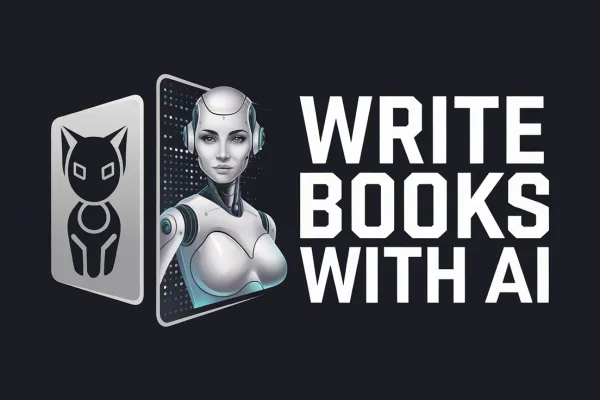Write Books With AI
Why Write Books With AI?

In recent years, artificial intelligence has made significant strides in various creative fields, including writing. As AI technology continues to evolve, more authors and publishers are exploring the potential of using AI in book writing. But why should one consider writing books with AI? Let's delve into some compelling reasons.
- Enhanced Productivity
One of the primary advantages of using AI in book writing is the potential for increased productivity. AI tools can generate ideas, outlines, and even draft chapters at a much faster rate than most human writers. This speed can be particularly beneficial for authors working on tight deadlines or those looking to produce content more frequently.
- Overcoming Writer's Block
Every writer has experienced the frustration of writer's block. AI can help overcome this hurdle by providing fresh ideas, alternative perspectives, or even generating content to get the creative juices flowing again. It can serve as a brainstorming partner, offering suggestions when you're stuck.
- Research Assistance
AI can quickly gather and synthesize vast amounts of information on any given topic. This capability can be invaluable for authors writing non-fiction books or novels that require extensive research. AI can help identify relevant sources, summarize key points, and even fact-check information, saving writers countless hours of research time.
- Exploring New Genres and Styles
AI writing tools can help authors experiment with different writing styles and genres they might not typically explore. By analyzing patterns in various literary styles, AI can generate content that mimics different genres, potentially inspiring authors to branch out and try new forms of writing.
- Collaborative Writing
AI can serve as a collaborative partner in the writing process. It can offer suggestions for plot development, character arcs, or dialogue, acting as a sounding board for ideas. This collaboration can lead to more dynamic and well-rounded stories.
- Personalized Content Creation
AI can analyze reader preferences and tailor content accordingly. This capability could be particularly useful for authors writing series or those looking to cater to specific audience demographics, potentially increasing reader engagement and satisfaction.
- Language Translation and Localization
For authors looking to reach a global audience, AI can assist in translating and localizing books for different markets. This can help authors expand their readership and overcome language barriers more efficiently than traditional translation methods.
- Editing and Proofreading
While not replacing human editors, AI can serve as a first line of defense in the editing process. It can identify grammatical errors, suggest improvements in sentence structure, and even highlight potential issues with pacing or consistency.
- Cost-Effective Publishing
For self-published authors or small publishing houses, AI can help reduce costs associated with book production. From cover design to formatting and even marketing copy, AI tools can assist in various aspects of the publishing process.
- Pushing Creative Boundaries
Perhaps most excitingly, AI has the potential to push the boundaries of storytelling. By generating unexpected plot twists, unique character combinations, or novel narrative structures, AI can challenge authors to think outside the box and create truly innovative works.
While AI presents exciting possibilities for book writing, it's important to note that it's not meant to replace human creativity and insight. Instead, AI should be viewed as a powerful tool that can enhance and streamline the writing process, allowing authors to focus more on the creative aspects of their work.
As with any tool, the key lies in how it's used. When leveraged effectively, AI can help authors produce higher quality work more efficiently, potentially revolutionizing the way books are written and published. As AI technology continues to advance, its role in book writing is likely to become increasingly significant, opening up new possibilities for storytelling and content creation.